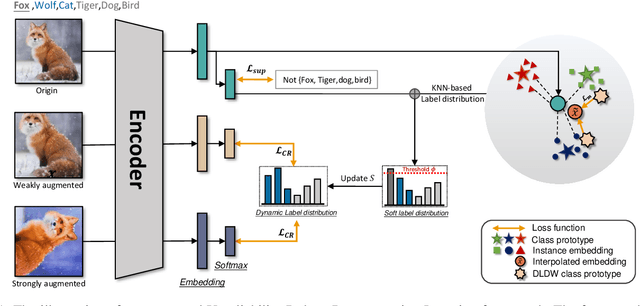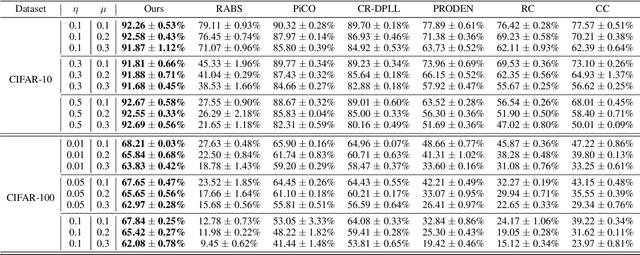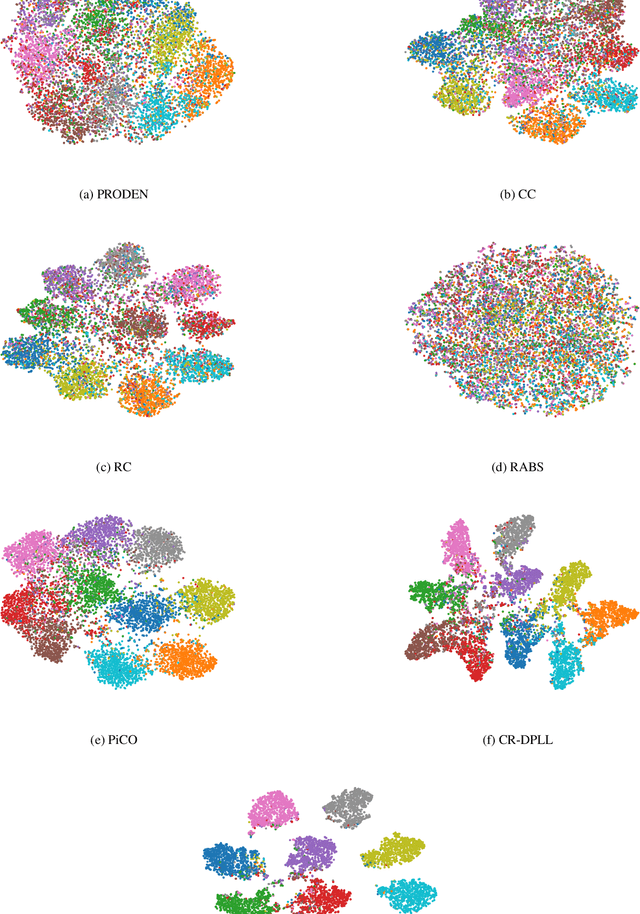Robust Representation Learning for Unreliable Partial Label Learning
Paper and Code
Aug 31, 2023



Partial Label Learning (PLL) is a type of weakly supervised learning where each training instance is assigned a set of candidate labels, but only one label is the ground-truth. However, this idealistic assumption may not always hold due to potential annotation inaccuracies, meaning the ground-truth may not be present in the candidate label set. This is known as Unreliable Partial Label Learning (UPLL) that introduces an additional complexity due to the inherent unreliability and ambiguity of partial labels, often resulting in a sub-optimal performance with existing methods. To address this challenge, we propose the Unreliability-Robust Representation Learning framework (URRL) that leverages unreliability-robust contrastive learning to help the model fortify against unreliable partial labels effectively. Concurrently, we propose a dual strategy that combines KNN-based candidate label set correction and consistency-regularization-based label disambiguation to refine label quality and enhance the ability of representation learning within the URRL framework. Extensive experiments demonstrate that the proposed method outperforms state-of-the-art PLL methods on various datasets with diverse degrees of unreliability and ambiguity. Furthermore, we provide a theoretical analysis of our approach from the perspective of the expectation maximization (EM) algorithm. Upon acceptance, we pledge to make the code publicly accessible.
 Add to Chrome
Add to Chrome Add to Firefox
Add to Firefox Add to Edge
Add to Edge